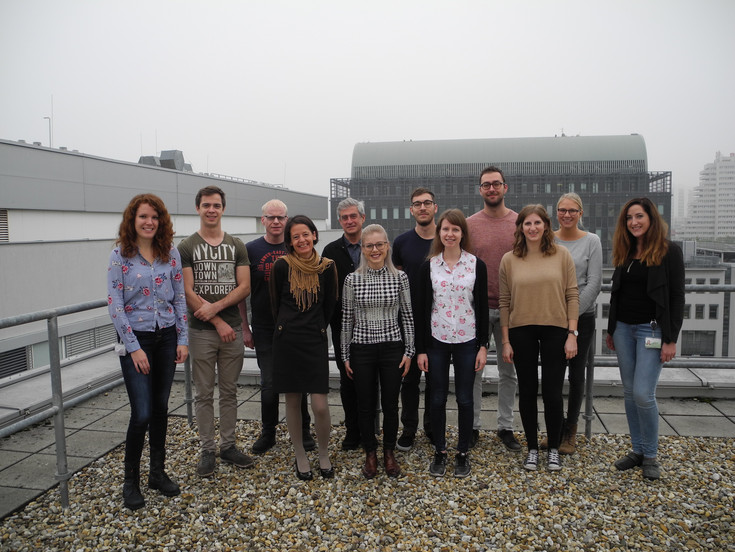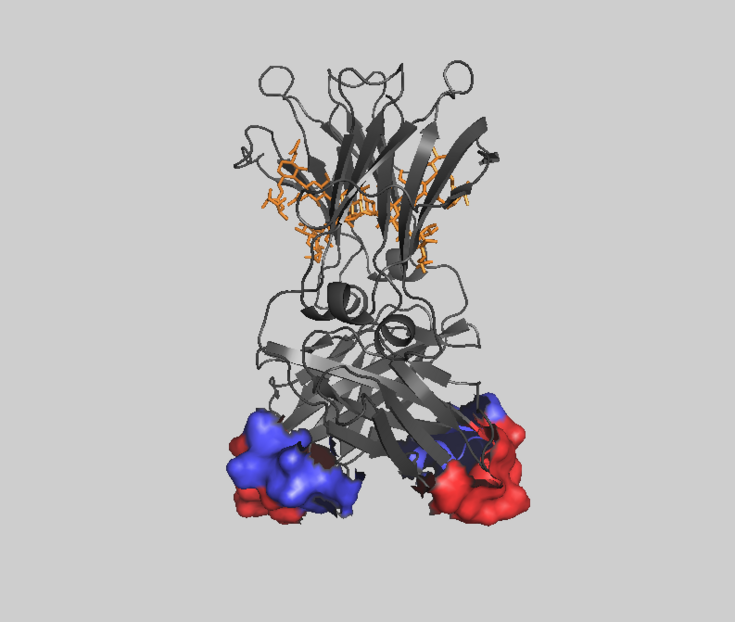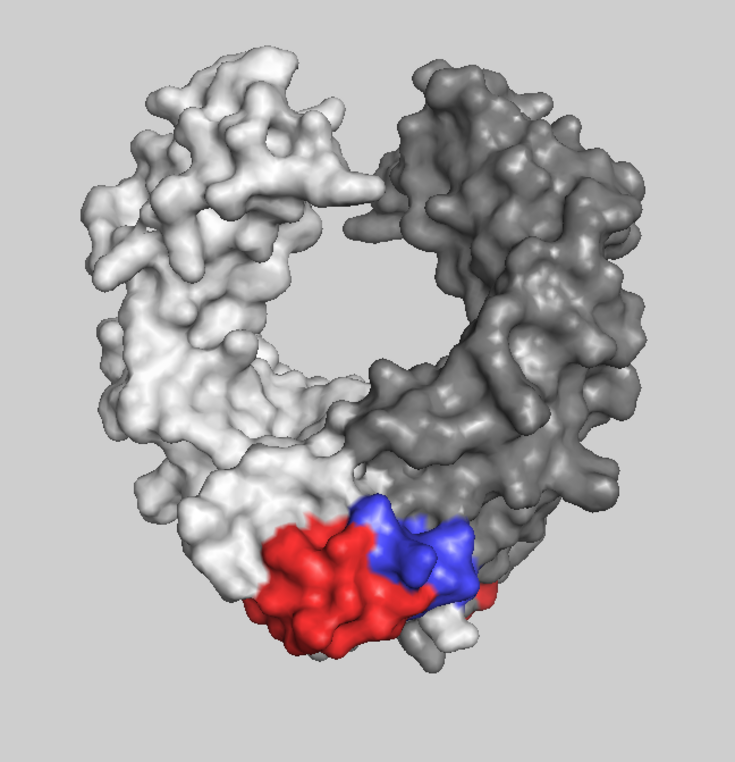
Antibody Engineering
Research Topics
Since 2004, we have been working on the development of a totally new way to engineer antibodies. We have realized that is it possible to introduce antigen binding sites into constant domains of antibodies by randomizing certain loop sequences in these domains and then selecting specifically binding domains from large surface display libraries. By this, it is possible to design so-called Fcabs (Fc antigen binding), which are Fc fragments with antigen binding sites in the CH3 domains. An Fcab combines all attractive properties of a complete antibody (antigen binding, effector functions and long in vivo half life) in a molecule of only one third the size.
When an Fcab is used as a module in a complete immunoglobulin, an antibody is generated that has, in addition to its natural antigen binding sites in the variable domains, an additional antigen binding site in the constant CH3 domains. Due to this added functionality, which can be used for the design and engineering of bispecific or oligovalent monoclonal antibodies, this novel antibody format is called mab2.
It is also possible to engineer constant domains in Fab fragments, thus creating bispecific or bivalent Fabs with two independent binding sites. Such proteins are called Fabcab (Fab with antigen binding sites in the constant domains)
We are using knowledge-based protein engineering methods as well as in vitro directed evolution to select and improve Fcabs with specific antigen binding properties. To achieve these aims, we employ yeast surface display as well as phage surface display methods, bacterial, yeast and mammalian cell expression systems, as well as the full range of biochemical, biophasical and immunological analytical and preparative methods.
An important aspect of our work is to analyze and improve the biophysical properties of selected antibodies and antibody fragments, by employing state of the art methods such as differential scanning calorimetry, circular dichroism spectroscopy, UV-VIS and fluorescence spectroscopy surface plasmon resonance and biolayer interferometry methods, isothermal titration calorimetry and many more.
Our Modular Antibody Engineering technology has led to the founding of F-star, a BOKU spin-off company (www.f-star.com) which was founded in 2006 by Florian Rüker, Gordana Wozniak-Knopp, Gottfried Himmler and Geert Mudde. F-star is located in Cambridge, UK, currently employs a staff of more than 100 and has raised $200 million in non-dilutive capital and revenues, and $56 in venture capital.

Ribbon model of an Fcab. Antigen binding sites in the CH3 domains are colored

Space fill model of an Fcab

Fabcab structure, with CDR mediated binding site on top, and constant domain mediated binding sites at the bottom


